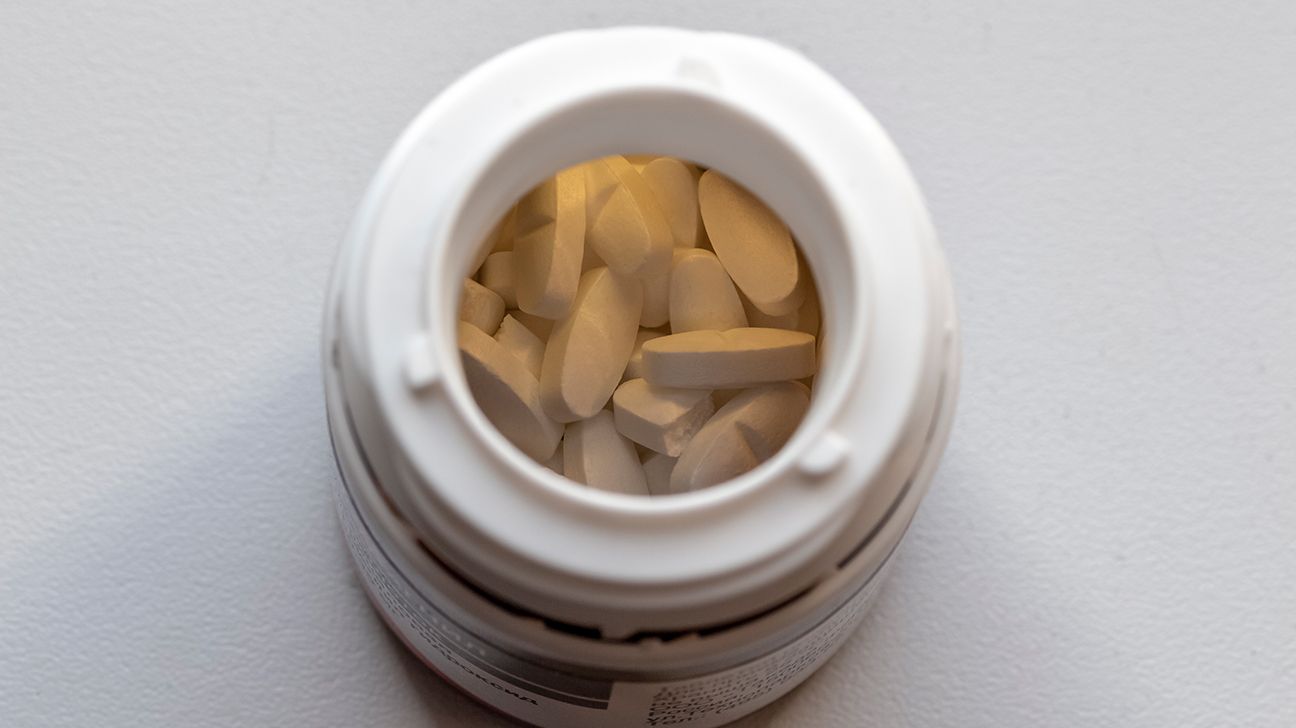H2 receptor blockers are a class of medications that treat conditions causing excess stomach acid, such as GERD and peptic ulcers. They’re usually well-tolerated and have few side effects.

These medications are available over the counter (OTC) and by prescription. Common H2 receptor blockers include:
- nizatidine (Axid)
- famotidine (Pepcid, Pepcid AC)
- cimetidine (Tagamet, Tagamet HB)
In 2020, the Food and Drug Administration (FDA) removed a popular H2 agonist called ranitidine (Zantac) from the market due to the presence of contaminants. Currently, the drug is no longer in use.
Read on to learn about their uses, side effects, and more.
H2 receptor blockers are
Peptic ulcers are painful sores that form in the lining of the stomach, lower esophagus, or duodenum, which is the first part of the small intestine. Doctors may also recommend H2 receptor blockers to keep peptic ulcers from returning.
Additionally, they are used to relieve the symptoms of gastroesophageal reflux disease (GERD). This is a chronic form of acid reflux, which is when acidic stomach contents flow back up into the esophagus. Over time, it can cause heartburn, nausea, or trouble swallowing.
H2 blockers may also be used to treat less common conditions such as Zollinger-Ellison syndrome, a condition that causes an increased production of stomach acid.
In some cases, doctors may recommend H2 receptor blockers for off-label use. This means using the medication to treat a condition that the medication hasn’t been approved to treat. For example, they can be used for pancreatic problems and allergic reactions.
When you take an H2 receptor blocker, the active ingredients travel to specific receptors on the surface of the stomach cells that release acids. The medication
By reducing the amount of acid in the stomach, damaged tissues get time to heal.
Side effects are fairly uncommon, and they are usually mild. They
- fatigue
- drowsiness
- diarrhea
- constipation
- headaches
- muscles aches
In rare cases, H2 receptor blockers might cause more serious side effects, such as:
- blistered, burning, or scaling skin
- changes in vision
- confusion
- agitation
- difficulty breathing
- wheezing
- chest tightness
- irregular heartbeat
- hallucinations
- suicidal thoughts
It’s a good idea to speak with your doctor if you have any of these or other symptoms that you suspect may be due to taking an H2 receptor blocker.
Despite their potential side effects, H2 receptor blockers are usually a very effective treatment for conditions that cause excess stomach acid. You and your doctor can discuss the potential risks and determine whether H2 receptor blockers are the best option for your particular condition.
PPIs are another type of medication used to reduce stomach acid and treat acid reflux or GERD. Examples of PPIs include esomeprazole (Nexium) and pantoprazole (Protonix).
Both medications work by blocking and decreasing the production of stomach acid, but PPIs are considered stronger and
However, H2 receptor blockers specifically decrease the acid released in the evening, which is a common contributor to peptic ulcers. This is why H2 receptor blockers are prescribed to people who have ulcers, and PPIs are more often prescribed to people who have GERD or acid reflux.
Doctors usually don’t recommend both at the same time because H2 receptor blockers can interfere with PPIs. If your GERD symptoms don’t improve with the use of a PPI, your doctor may recommend an H2 receptor blocker instead.
If you have peptic ulcers or GERD, your doctor will likely recommend that you avoid taking specific medications and that you make certain lifestyle changes to ease your symptoms.
For example, if you have peptic ulcers, your doctor may recommend that you limit your use of nonsteroidal anti-inflammatory drugs (NSAIDs), such as aspirin and ibuprofen. Frequent and long-term use of these types of medications can increase your risk of peptic ulcer disease.
Your doctor may suggest that you take acetaminophen instead. However, you should not stop taking any medications without speaking to your doctor first.
Making some lifestyle adjustments can also help reduce peptic ulcer symptoms. These
- limiting alcohol consumption
- avoiding spicy foods
- reducing stress
- stopping smoking, if applicable
If you have GERD or acid reflux, lifestyle changes that can ease symptoms
- eating several small meals per day instead of three large ones
- avoiding alcohol, tobacco, and foods and drinks known to trigger symptoms
- elevating the head of the bed about 6 inches
- consuming less fat
- avoiding lying down for at least 2 hours after eating
- avoiding snacks before bedtime
Speak with your doctor if your symptoms don’t improve with medication or lifestyle changes. You may need more aggressive treatment or surgery to eliminate an ulcer or reduce acid reflux.
You should seek prompt medical attention if you develop any of the following symptoms:
- abdominal pain that’s much worse than you’re accustomed to experiencing
- a high fever
- vomiting that’s not easily relieved
- dizziness and lightheadedness
These are signs of complications from peptic ulcer disease that need to be addressed immediately.
H2 receptor blockers can help if you have GERD or peptic ulcers. While they do have some potential side effects, these are usually mild.
It’s also a good idea to make certain lifestyle changes to improve your symptoms. For example, you can try avoiding spicy foods, reducing stress, and limiting alcohol and tobacco consumption.









